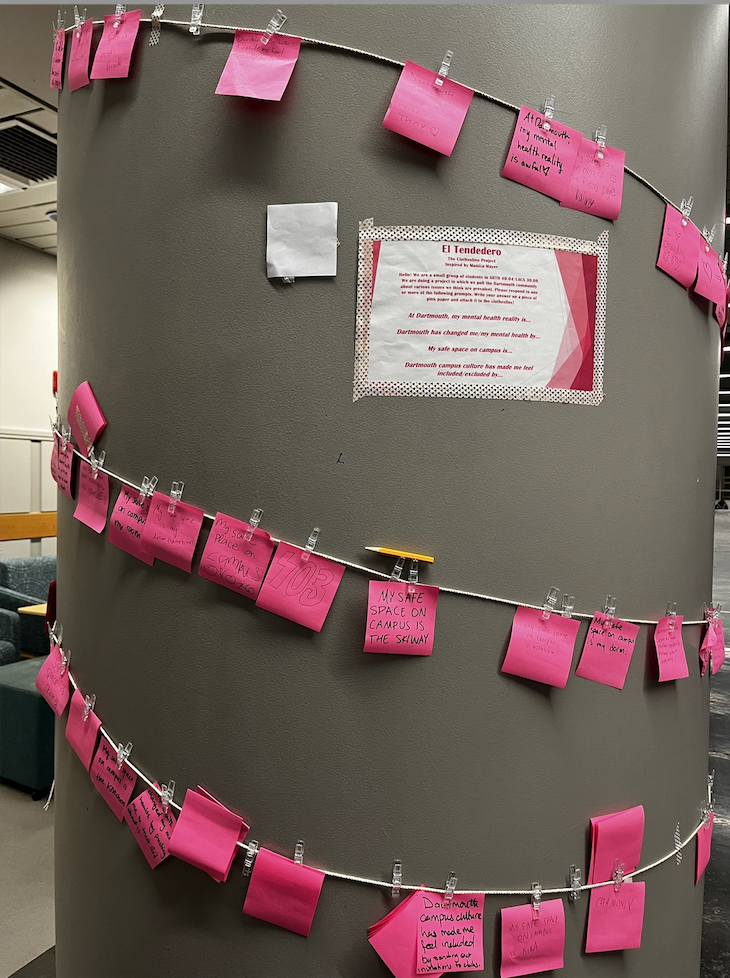
Our Tendedero: Mental Health
As my winter term comes to an end, I want prospective students to note the necessity of having honest conversations for reflection. During Week 8, a group of Dartmouth students and I implemented a tendedero (clothesline project) for public dialogue. Essentially, we reconstructed Monica Mayer's clothesline project, where she facilitated an honest conversation around women's experiences with sexual violence in Mexico City. She utilized viewer's interaction and responses with the clothesline as the ultimate form of the art. However, we focused on discussions about mental health in the context of the greater Dartmouth community. We made this decision to embody the feminist praxis by emphasizing personal experiences and emotions, and pay tribute to Monica Mayer's artistic legacy.

We wrapped our tendedero around a column on the first floor of Baker-Berry Library. Normally, this column is used as a passing point to enter or leave the heart of the library, but we essentially disrupt this walk. Just like how our tendedero works towards disrupting what we consider "normal" at Dartmouth, asking us to consider how social culture and the physical landscape contribute to mental health concerns on campus. The placement of the clothesline as a "circle within a circle within a circle" shed light on the ways that physical and nonphysical spaces on campus have the power to include and exclude others.
This alludes to the responses that were collected, as there was a variety of "safe places" that students wrote down, from public to private spaces. From the First-Generation Office, Orozco Murals, The Hood, Sanborn Library, The River (clubhouse), etc. A few examples of private spaces range from Room 403, the respondent's dorm, the music practice rooms, nature, the respondent's sorority, etc. These responses weave into the importance of the variance of safe places for Dartmouth students.
The responses of Dartmouth students reveal the necessity of better supporting all students to make sure that everyone has a safe place on campus and feels supported in every aspect of their life. Ultimately, this project serves as a vehicle of meaningful reflection that will help us come up with "solutions" to create an environment more inclusive for everyone's mental health. I hope that prospective students know that it is so important to stay true to yourself and to always voice your opinions. Dartmouth isn't perfect, but we need to find collective ways to change these norms and create more inclusive spaces on campus for future classes.


















